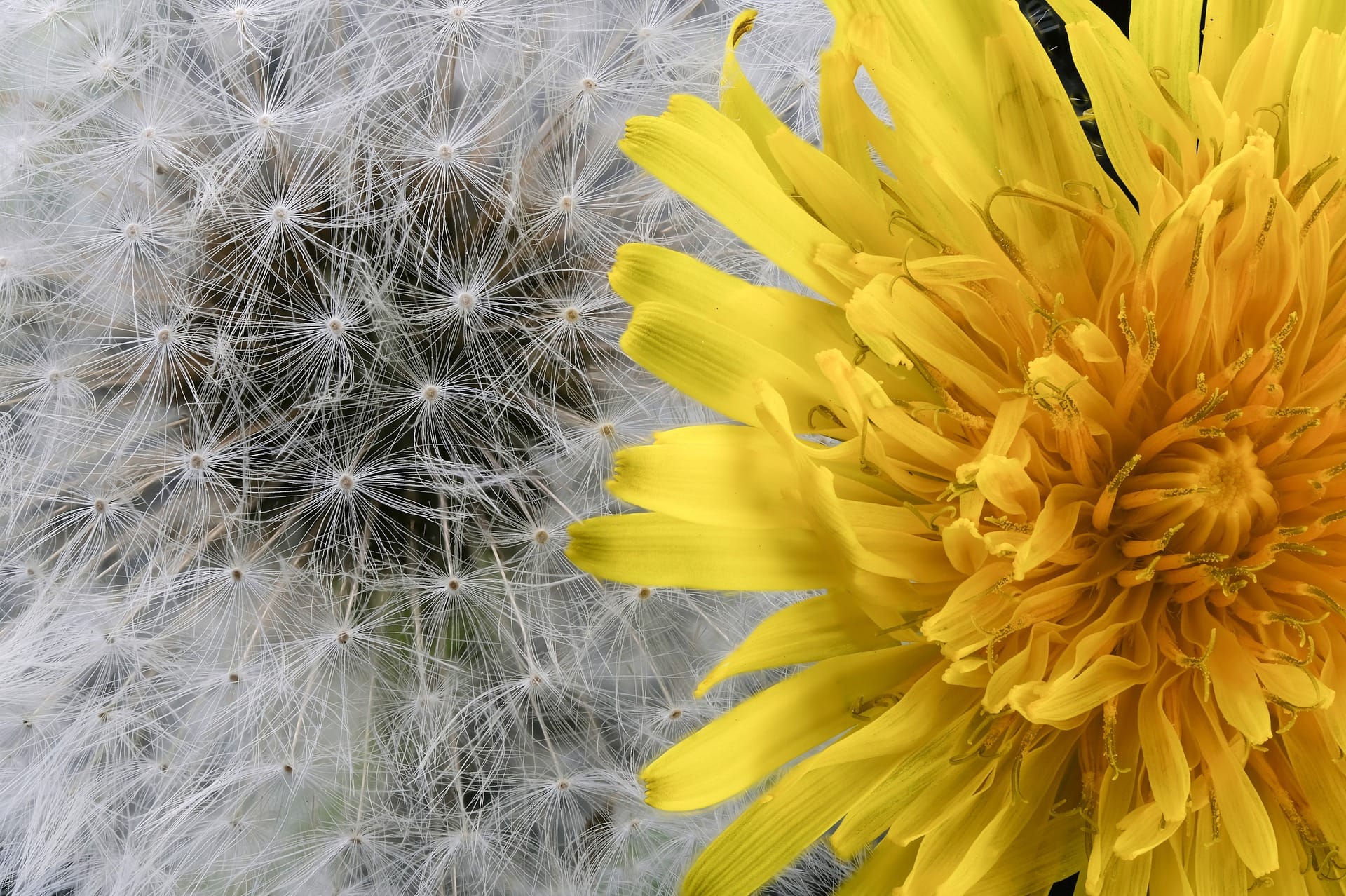A folk recipe for treating cancer is popular on the Internet - it is claimed that dandelion kills 98% of cancer cells in just 48 hours. We decided to check whether there is scientific evidence of such a healing effect of this plant.
About treatment cancer by using decoction dandelion write V Media and in blogs. Some just claimthat the root of this plant more efficient chemotherapy, others clarify, which is 100 times. Still others lead feature: “Dandelion root works even better than chemotherapy, since the latter kills all cells, while dandelion root kills only those that are carcinogenic.” You can also find these numbers: “Dandelion root can kill 98% of cancer cells in 48 hours.” ABOUT healing action dandelion against cancer write And users social networks, also they share own recipes preparations infusions.
According to statistics According to WHO, the cause of death of every sixth deceased is cancer. Almost 10 million people die from cancer every year. In 2020, the most common cancer pathologies detected were breast (2.26 million cases), lung (2.21 million), colon and rectal (1.93 million), prostate (1.41 million), non-melanoma skin cancer (1.20 million) and stomach cancer (1.09 million). A cancerous tumor arises as a result of the degeneration of healthy cells into cancerous ones; its causes are a combination of genetic factors, as well as physical (for example, ultraviolet radiation), chemical (tobacco smoke, asbestos) and biological (viruses, bacteria) carcinogens.
Humanity has long been looking for ways to effectively combat cancer. Today, medicine, in addition to surgery, can offer chemotherapy, as well as radiation, hormonal and targeted therapy. Researchers are constantly studying new treatment methods, and doctors are testing different combinations of already known and only registered drugs.
The basis of the claims about the healing properties of dandelion is article 2012 on the website of the Canadian Broadcasting Corporation (CBC), which tells the story of 72-year-old John DiCarlo. Doctors diagnosed the man with leukemia, a malignant systemic bone marrow disorder in which healthy white blood cells in the blood are replaced by altered cells. After three years of treatment, doctors declared DiCarlo's disease incurable and sent him home to put things in order and spend the remaining time with his family. The man did not want to die and, on the advice of an oncology clinic not named in the article, decided to try dandelion tea. Four months later, the patient returned to the hospital, and doctors were surprised to find that he had gone into remission. The CBC publication also mentions Dr. Caroline Hamm of the University of Windsor in Canada. Commenting on this case, she says that dandelion tea is unlikely to help absolutely all patients, and may even cause harm to some. Moreover, Hamm warned that taking dandelion tea may interfere with regular chemotherapy and urged patients not to use it without talking to their doctor first. CBC did not provide any other data in its material.

Claims about dandelion's ability to kill 98% of cancer cells in 48 hours came later when Health Eternally published in September 2016 published news with the headline “Scientists have found a root that kills 98% of cancer cells in just 48 hours” (the article itself is currently unavailable, but a reprint from 2018 can be found at friend website). The piece again told the story of John DiCarlo, quoted Caroline Hamm, and stated that “this powerful root stimulates the blood and immune system—treating prostate, lung, and other cancers better than chemotherapy” and “within 48 hours of contact with the extract, cancer cells begin to disintegrate. The body happily replaces them with new healthy cells.” Apart from the title, the clarification about 98% of cancer cells was not mentioned in the article. Also, the material did not contain any references to scientific experiments.
The 2016 Health Eternally news impressed many. A year later, Caroline Hamm herself even had to issue a refutation, her statement again published CBC. Hamm says the whole story (probably pre-dating DiCarlo) began with an elderly patient whose doctor diagnosed her with myelomonocytic leukemia. The woman was not upset, but told the doctor: “It’s okay, honey, I’ll take care of myself.” Three months later, her tests returned to normal; the patient herself attributed the merit to dandelion tea. However, the remission was short-lived - after another three months, deterioration began again. Apparently inspired by the example of the cheerful old lady, two more of Hamm’s patients began drinking dandelion tea and felt somewhat better. After this, the doctor became interested in the possible medicinal effect of the roots of this plant from a research point of view, but she did not recommend such a remedy to anyone instead of the main treatment or in addition to it. “It makes me sad that people do this. And this is tragic for patients who believe this, as it gives false hope. <…> Every week I receive emails from people all over the world who write that they want to stop their standard treatment and start taking dandelion tea. They might just die if they believe in its effectiveness,” Hamm said.
However, there are some studies on the effect of dandelion root on cancer cells. In August 2016 (a month before the material appeared that 98% of cancer cells die within 48 hours), a Canadian-Mexican team of scientists published article on the effect of an aqueous extract of dandelion root on colorectal cancer cells. In 48 hours, 95% of cancer cells actually died, but this did not happen in a living organism, but in vitro, that is, in a test tube or Petri dish. Such results cannot be transferred to humans, since the body is much more complex. In a USA Today commentary, Siyaram Pandey, professor of chemistry and biochemistry and co-author of the study, explains: “It is true that most cancer cells died within 48 hours, but this does not mean that a patient who takes dandelion root will be cured within 48 hours.” In vitro experiments are always only the first step in researching substances, and, unfortunately, many drugs are only effective in a test tube, but do not act on a living organism as scientists would like. In particular, pomegranate juice and chokeberry juice kills up to 80% of COVID-19 pathogens, and substances contained in olive pits have anti-inflammatory, antioxidant and analgesic effects. However, this only happens in a test tube on a cell culture; in real life, the juice will not cure the coronavirus, and swallowing olive pits, supposedly to improve health, is at a minimum useless, and at a maximum fraught with amputation of the stomach.
This is not the only study on the effect of aqueous extract of dandelion root on cancer cells and conducted at the University of Windsor. Doctors also treated cells with this extract melanomaaffected by pancreatic cancer glands and cellular lines leukemia person. In all cases, dandelion effectively destroyed cancer cells and did not harm healthy ones. However, these studies were carried out exclusively in vitro.
Only in 2019, employees of the Department of Chemistry and Biochemistry of the same university moved on to study the effect of dandelion root extract on cancer cells in vivo, that is, on a living organism. For the experiment, scientists took mice - they were injected with prostate cancer cells, and then, when the tumor began to grow, the animals were given either an aqueous extract of dandelion or plain water. In the group receiving dandelion, the tumors did shrink, as shown by an autopsy of mice killed after eight weeks of the experiment, but there was no talk of recovery or cure. Experiments on humans with an aqueous solution of dandelion root have not yet been conducted, so it is unclear whether such a treatment will help.
Memorial Sloan Kettering Cancer Center reportsdandelion root has some antitumor activity, but clinical trials are required to determine the effectiveness and safety of the treatment. The organization advises consulting with your healthcare provider before taking dandelion supplements or the plant itself for medicinal purposes.
In summary, an aqueous extract of dandelion root showed some antitumor activity, but almost all experiments were performed in vitro, so such data cannot be extrapolated to real-life use in the human body. To date, the only animals that have been treated with dandelion are mice. But since the experimental conditions involved killing and further examination of the corpses of experimental animals, even for them it is impossible to say with certainty that treatment would lead to a complete recovery. Moreover, using traditional medicine instead of modern methods can negatively affect the development of the disease, so trying to treat cancer with dandelion root is definitely not worth it.
Cover image: Bild von Vladimir auf Pixabay
Read on the topic:
- Is it true that hydrogen peroxide can treat and prevent various diseases, including coronavirus?
- Is it true that psychologist Wilhelm Reich was jailed for inventing an effective cure for cancer?
- Is it true that ultraviolet manicure lamps increase the risk of skin cancer?
- Is it true that deodorants and antiperspirants containing aluminum cause cancer?
If you find a spelling or grammatical error, please let us know by highlighting the error text and clicking Ctrl+Enter.






